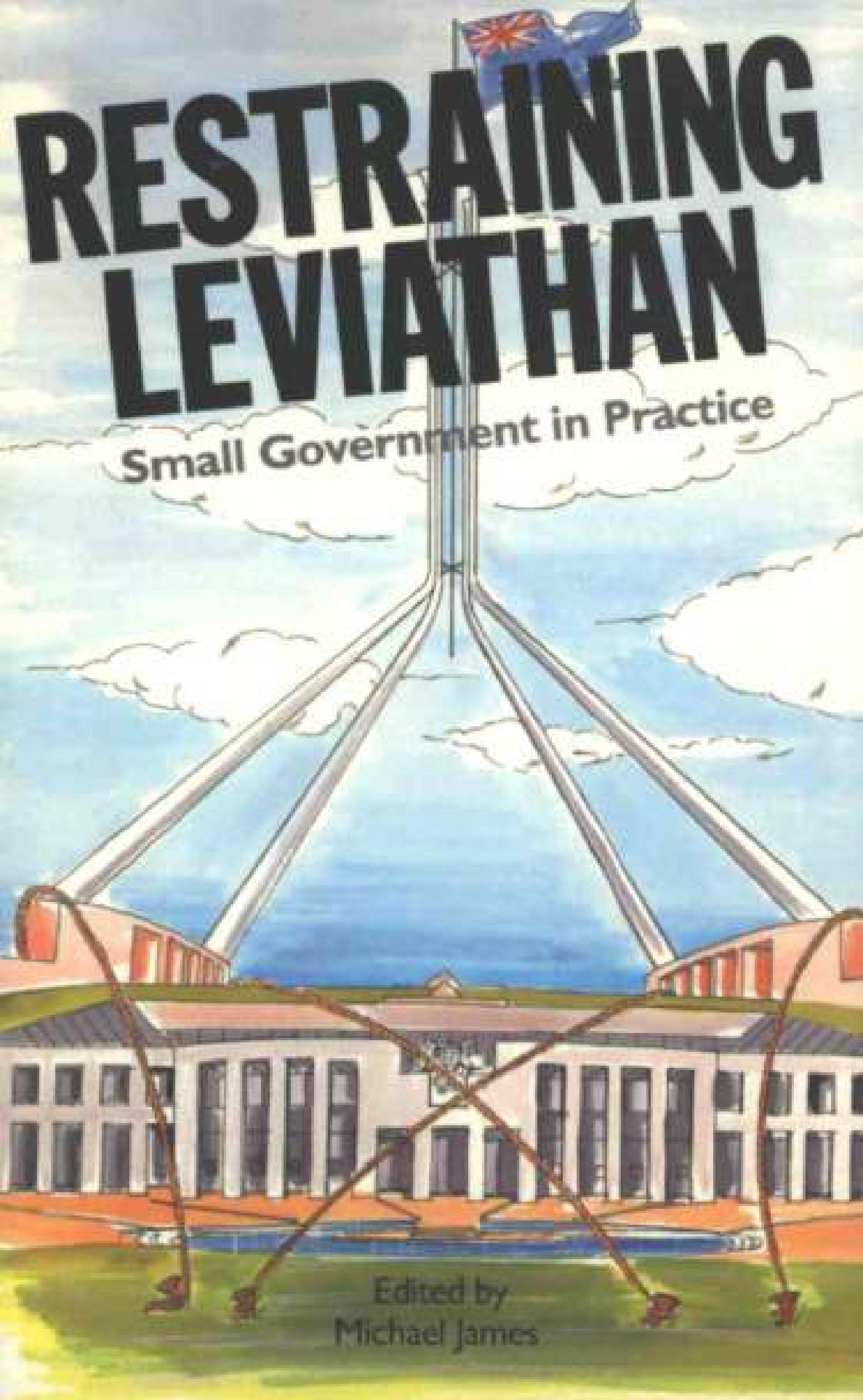Restraining Leviathan: Small Government in Practice
Home » Publications » Restraining Leviathan: Small Government in Practice

This collection seeks to increase our understanding of the scope and opportunities we have for making substantial and permanent reductions in the size of Australia’s public sector.
This book, Restraining Leviathan, is confirmation of how far we have moved from the insights of the original Leviathan, how far we have strayed down the path of thinking that there is only one kind of social arrangement appropriate to our times and circumstances. But the book is evidence as well of the turning of the intellectual tide that has occurred in the liberal democracies (and beyond) over the last 15 years. Hobbes speaks of ‘that which in the disputations of scholars is called absurdity’, and in this volume our disputatious scholars leave us with the clear impression that, in our submission to the state, we have reached the point of absurdity.
Again, Hobbes advises that ‘a man … be contented with so much liberty against other men, as he would allow other men against himself’. It is instructive and disturbing to consider how today’s citizens are encouraged to ignore this dictum, for why should I worry about my or my fellows’ freedom while I am in the protective custody of the state? Indeed, one of the greatest of this book’s many virtues is highlighting of the extent to which the size of government is not a fiscal but a moral problem.
This may seem a strange conclusion to draw from a work in which statistical and procedural arguments feature so heavily. But it follows, I believe, from the firm impression with which those arguments leave the reader. Virtually every contributor provides daunting evidence (a) of the quite extraordinary degree to which the citizens of free societies have allowed (more often asked) the stale to remove growing portions of their liberties; and (b) of the difficulties faced by anyone concerned to reverse this process.
Thus the message that Dr James’s collection sends us is that there may well be a danger in concentrating on the scope for governments, rather than the scope for persons. It sets an agenda in reminding us that the very origins of the ‘smaller government’ debate lie in both efficiency and liberty arguments. The issue of the ‘appropriate size of government’ is a question of means, not of ends. It should have as its central point of reference the maximum practical degree of personal freedom.
Dr James’s reader shows us not why reducing the scope of government is so difficult, but why it is so necessary. A key requirement now is for us to examine critically the moral foundations of government. The second item that this book places on the intellectual agenda is the analysis of the ability of government to achieve the tasks it sets itself. We need to look at the very nature of the public sector, its managerial and employment practices and its culture, and the reasons why they stand in the way of government’s completing those tasks satisfactorily.
David Band
